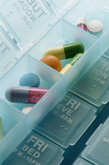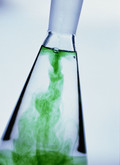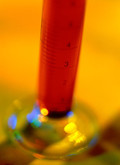Generics/General
International trends in generics: India
South Africa, home to 5.7 million HIV-positive people – more than any other country in the world – gives AIDS patients free drugs, most of which are generics that come from India. This is just one country, but representative of many that are keen to buy low-priced generic medicines from India. So much so that India now produces a quarter of the world’s generic medicines.
What is ‘tentative approval’ and how does it affect generics?
Tentative approval by the FDA enables generics access to poor nations under a US initiative, which allows sale of generics to treat conditions where there is a significant public health impact, even though the originator drugs are still under patent protection.
Drug recalls and generic medicines
In 2009 there were a record number of drug recalls according to Health Reform Watch. There were an amazing 1,742 drug recalls in 2009 compared to 426 in 2008.
Post-marketing pharmacokinetic bioequivalence between generic and branded amoxicillin formulations
Amoxicillin is a moderate-spectrum, bacteriolytic, β-lactam antibiotic used to treat bacterial infections caused by susceptible microorganisms. It is usually the drug of choice within the class because it is better absorbed, following oral administration, than other β-lactam antibiotics.
FDA creates new division to speed up generic approval times
As the FDA’s Office of Generic Drugs (OGD) struggles to keep up with its growing backlog of abbreviated new drug approvals (ANDAs), the office is creating a new chemistry division that it hopes will allow speedier generic drug approvals.
Generic substitution of cyclosporin sometimes undesired
The bio-equivalence criteria of the Dutch Medicines Evaluation Board (CBG-MEB) offer insufficient guarantee for a safe substitution of generic medicines in transplantation medicine, argue Internist-Nephrologist/Clinical Pharmacologist Teun van Gelder of the Erasmus MC and Professor of Surgery Robert Porte of the University of Groningen –both members of the board of the Nederlandse Transplantatie Vereniging (NTV) – in Pharmaceutisch Weekblad of 29 January 2010.
India claims to be world leader in generics exports
The Indian government has said that India ranks top in the world in exporting generic medicines, with a worth of 50,000 billion rupees a year. The country is now exporting to more than 200 nations worldwide, and exports totalled around US$8 billion in 2008-9, the majority going to the US and Europe, according to ‘Union Minister of State for Chemicals and Fertilisers Srikanta Jena’. ‘The industry’s achievements could create more than 500,000 high-value jobs in India and provide the nation with low-cost treatments for life-threatening conditions such as malaria and tuberculosis’, he added.
EGA wants better Centralised Procedure and Decentralised Procedure for generics authorisation
The European Generic medicines Association (EGA) presented ‘Vision 2015’, which aims to create a globally competitive generic industry, increase patient access to affordable quality medicines and ensure sustainable health care in Europe, e.g. by improving the EU's centralised procedure (CP) and decentralised procedure (DCP) for authorising medicines.
Should Indian generic firms partner with Big Pharma?
After years of warding off generics, large pharmaceutical companies are embracing generic drug manufacturers and vying for a share of the off-patent drugs business. Indian generic companies, once considered business pariahs, are the focus of plenty of action, Anju Ghangurde reports in Scrip News of 9 December 2009.
Big Pharma’s generics entry and generic drug prices
After years of warding off generics, large pharmaceutical companies are embracing generic drug manufacturers and vying for a share of the off-patent drugs business. Indian generic companies, once considered business pariahs, are the focus of plenty of action, Anju Ghangurde reports in Scrip News of 9 December 2009.













